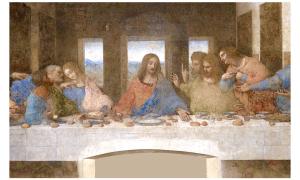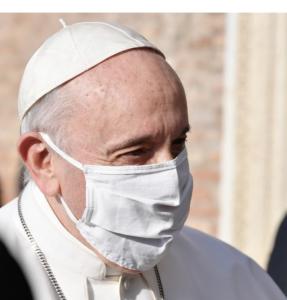
Society tries to stump Jesus Christ with questions about life and truth, but Christ comes through each time and in a loving and understanding way, as he is put on the public stand.
In the great court of existence, where humanity’s struggles and triumphs intertwine, the immediate atmosphere buzzed with anxious energy.
Today, the most extraordinary trial was about to unfold. The jurors are in place and the judge calls the court to order.
At the center of the court stood a humble wooden witness box, a stark contrast to the grandeur of the courtroom. In the eyes of everyone present, the most significant figure in history was set to give his testimony, one Jesus Christ.
He didn’t seem as daunting as one would expect – he appeared understated-even pedestrian. He appeared as most any man or women.
The prosecutor, Society, was a complex entity—a collection of voices, opinions, and expectations forged over centuries. Society embodied all that humanity had grappled with: prejudice, disillusionment, greed, and despair.
Clad in a robe woven from the fabric of doubt and criticism, the prosecutor approached the witness box, eager to challenge the man of compassion.
“Jesus of Nazareth,” began Society, voice booming, “your teachings claim to illuminate the path of truth. Yet, we live in a world rife with conflict and suffering. How can you assert that love is the answer?”
With a serene expression, Jesus replied, “Love is the foundation upon which understanding is built. It may seem fragile amidst chaos, but it is in love that we find the strength to uplift one another.
“Just like a seed nurtured in fertile soil, love will inevitably yield hope, even in the harshest of circumstances.”
Society paused, flustered momentarily but quickly retorted. “And what of the actions of those who profess to follow your teachings?”
“History is littered with the scars inflicted in your name! How do you justify the hypocrisy that often accompanies your words?”
Jesus responded gently, “The faults of humanity should not reflect the purity of my message”.
“Each person grapples with their own imperfections. My call is for hearts to strive for truth and authenticity, not perfection. It is in recognizing our flaws that we learn compassion for others.”
Disclaimer echoed in the courtroom, lending an air of gravity to the discussion. Yet, Society pushed onward, undeterred.
“You speak of forgiveness and grace, but what of justice? Does evil not deserve to be punished? Isn’t it naive to believe that solely love can mend the rifts of this world?”
Jesus, his eyes filled with kindness, replied, “Justice and mercy are both integral to healing. Forgiveness does not negate justice; it inspires transformation”.
“When we offer grace to others, we plant the seeds of change. It challenges the cycle of vengeance and paves a path toward reconciliation. True justice seeks restoration, not merely retribution.”
The murmurs in the room grew as Society struggled to find further ammunition amidst the depth of his responses.
Yet, with a glimmer of cleverness, it delivered the next blow. “You preach kindness, but what about the unforgivable? Are there limits to your compassion? Can you truly tell us that even the worst among us deserve love?”
The courtroom collectively held its breath as the question lingered heavy in the air.
Jesus looked upon the assembly, his voice resonating with profound empathy. “Every soul is a child of God, deserving of grace. It is our capacity to love even those who have strayed that can lead to redemption. It is easy to love the lovely; it is in our darkest moments when we are challenged to love that we learn to shine our brightest.”
Society faltered, recognizing the fortified barricade of love and truth Christ was erecting against its accusations. As the trial wore on, it threw every clever argument in its arsenal: despair, cynicism, and questions that cut deep.
But through each interrogation, Jesus’ statements met challenges with a quiet strength, illuminating the shadows with hope and understanding.
Finally, as the sun began to set, casting a golden hue throughout the courtroom, Society realized that its strategies had transformed into an exploration—it had attempted to expose fracture, yet found healing. It had predicted resistance but discovered acceptance. The trial was no longer about prosecution but connection and hope.
With a softened heart, Society inquired once more, “If you are so committed to love and truth, why then do so many choose hatred and division?”
Jesus smiled gently. “Because each person walks a path that shapes their understanding. Just as a flower blooms in its own time, so do hearts open to love.”
”Always remember, light cannot force darkness to disappear; it simply shines, inviting those lost to find their way home. The journey toward love may be long and arduous, yet it is always worth the struggle.”
As the gavel fell, the courtroom bore witness not to a victory or defeat but to a profound awakening. Jesus left the stand, not as a conqueror but as a teacher, embodying the essence of compassion and understanding.
Society, once a formidable foe, began to realize that it too was a seeker, yearning for truth. Together, they transformed the narrative, proving that love and understanding could overcome the deepest divides.
In the end, the testimony of Jesus Christ echoed beyond the courtroom and throughout the world, leaving behind a legacy reaching far beyond that chamber—a gentle reminder that in every moment, we hold the potential to choose light over darkness, reconciliation over strife, and love over fear. The Court was adjourned- no verdict was returned.













